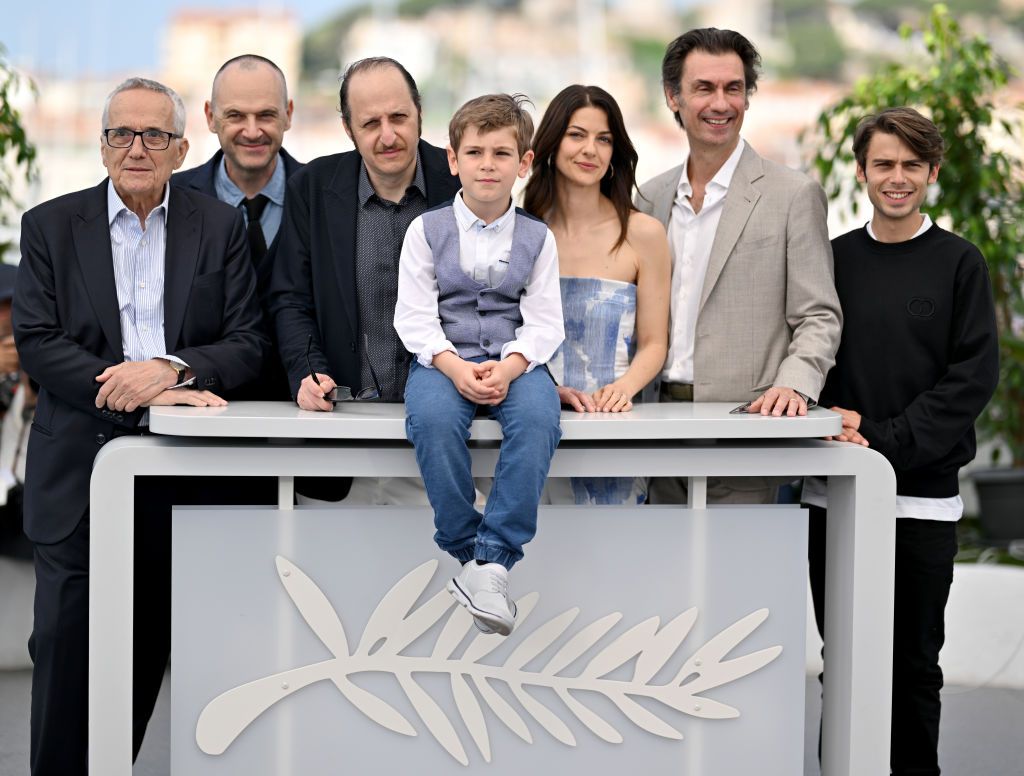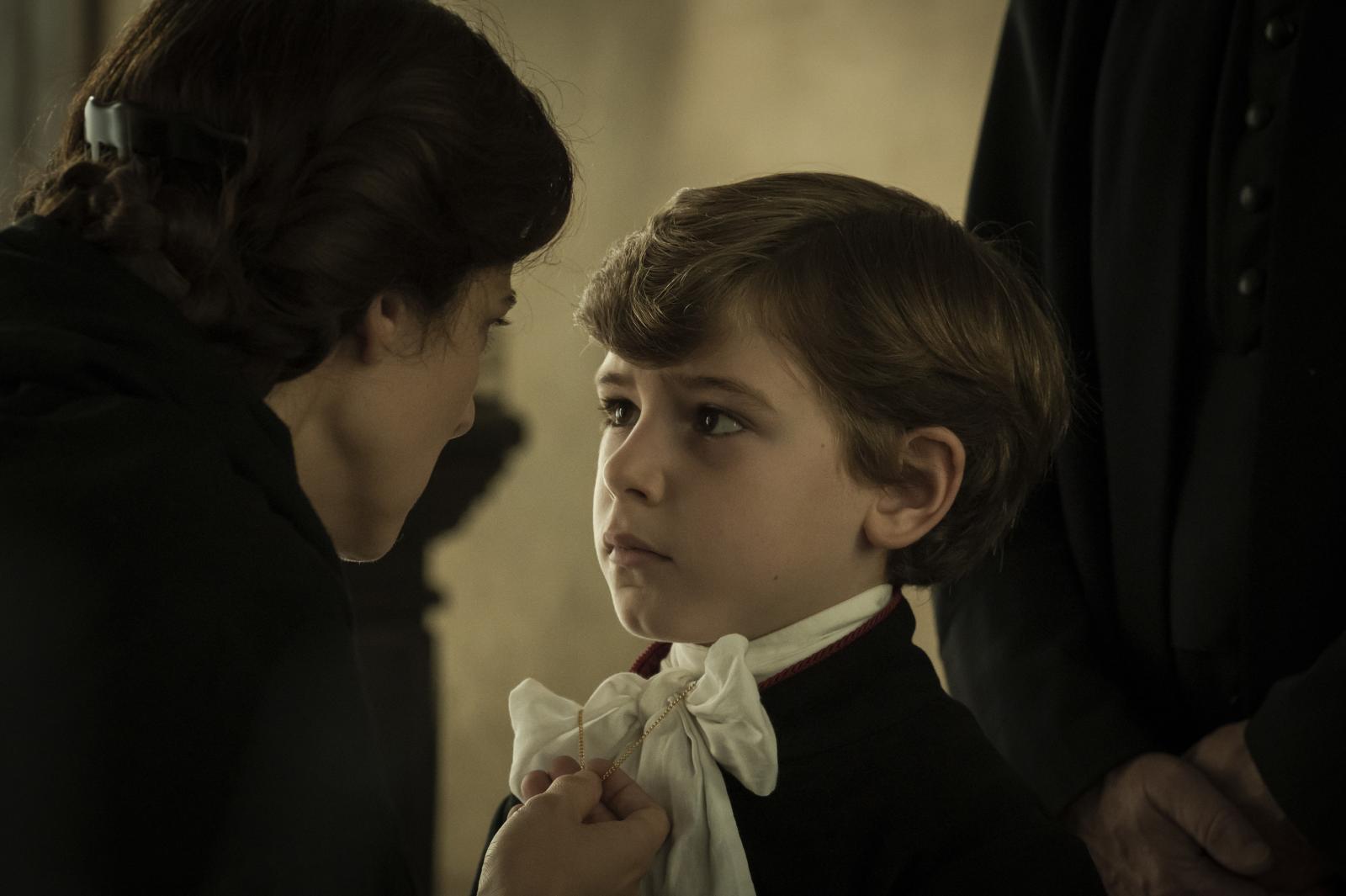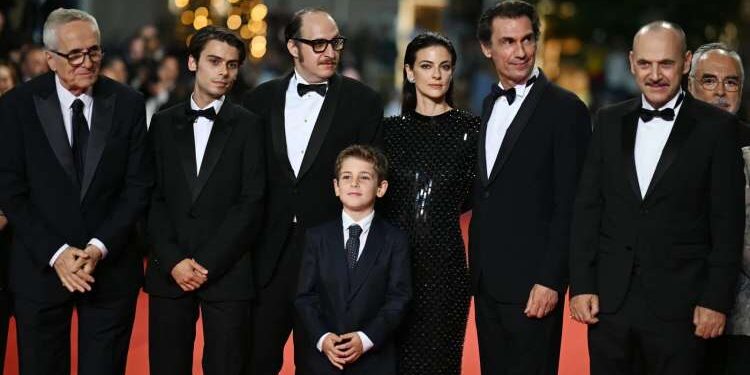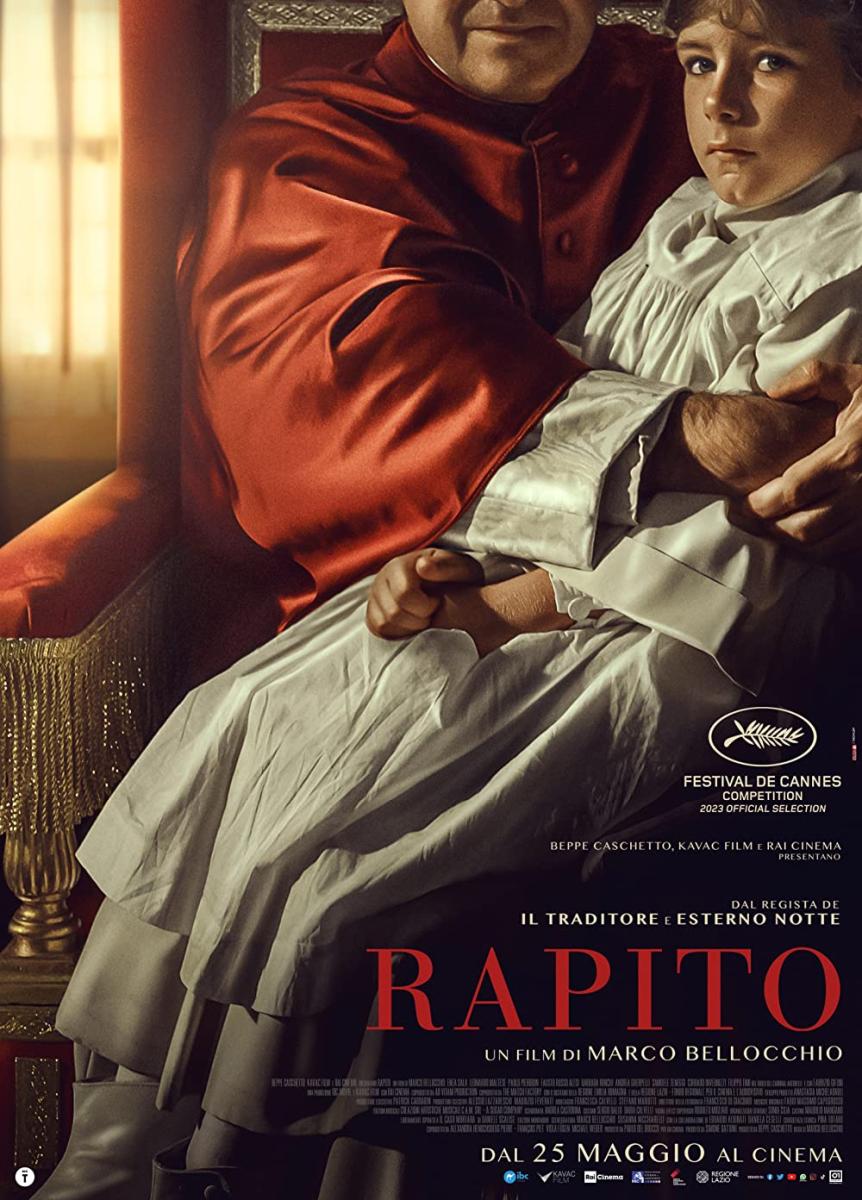The film “Rapito” (the abduction) of Italian director Marco Bellocchio was screened in the 76th edition of the Cannes Festival, plunging the public in the heart of the Mortara case. It offers a captivating immersion in 19th century Italy and raises deep questions about religious freedom, identity and tolerance.
The film retraces the extraordinary fate of Edgardo Mortara which aroused great emotion throughout the 19th century Italy. The authorities came to his parents one evening in June 1858 and gave them twenty-four hours to give them their child. This intervention was carried out on the orders of the Pope, after the revelation of the secret baptism of the child.
Faced with this relentless decision, Edgardo’s parents tried to understand and assert their arguments. They quickly discovered that a former Catholic servant was at the origin of this betrayal. Unfortunately, in the pontifical state of Bologna, any discussion was in vain and the authorities left no compromise.
Because of his baptism, Edgardo is considered an apostate and it is therefore impossible for him to live in a Jewish family. According to beliefs of the time, only the Church can save and protect it spiritually. The Inquisitor of Bologna therefore organizes his placement in a Catechumens house, a closed institute intended for the conversion to Catholicism of young Jews, Muslims and non -Catholic Christians.
The Mortara case, although exceptional, is not an isolated case. During the press conference that followed the first in the film, the director revealed that many other kidnappings and forced conversions have taken place since the 16th century. Indeed, Jewish families were forced to use Catholic servants during the Shabbat and these secretly were responsible for baptizing Jewish little children in order to “save” them. This practice was supported by the Catholic religious authorities in the name of God. During the trial, the servant said she had baptized little Edgardo while he was sick and believed him dying, in the hope of saving him from limbo, in accordance with the belief widespread at the time.
These secret conversions were used as a means of pressure by the authorities to encourage Jewish families to convert to Catholicism in order to recover their children. An alternative fiercely rejected by the Mortara family, who refused to choose between their child and their religion.
Rapito Going far beyond a simple historical drama, he recalls the importance of religious freedom and raises deep questions about identity, faith and tolerance. This poignant film invites us to reflect on the consequences of religious intolerance and the need to preserve the fundamental rights of each individual, regardless of his belief.
Rapito Makestore the theme of the grip through the overwhelming history of this young Jewish child suddenly immersed in the precepts of the Catholic religion. As soon as he arrived in his new home, Edgardo receives a advice from another boy, telling him that he must behave exemplary if he wishes to quickly find his family. However, this council turns out to be a trap, giving the illusion of a happy conversion, when in reality, it strengthens the decision of the papal authorities to keep him away from his family. At the same time, a process of indoctrination is set up, based on confinement and guilt.
Another remarkable element of this story is the trajectory of Edgardo Mortara itself. Despite the immeasurable test he experienced, he will become a priest and will remain a fervent Catholic until his death, remaining at a distance from his family, even trying to convert it to Catholicism. Marco Bellocchio highlighted the contradictions of Edgardo Mortara and the suffering that results from it. He skillfully uses the mystery surrounding the character’s psychology throughout the film. Does he pretend? Does it act by protective reflex or is it the victim of Stockholm syndrome? Throughout the story, the character fascinates and arouses questions.
The story of Edgardo Mortara is exceptional in many ways, in particular by its media coverage. His parents fought tirelessly against the pontifical authorities to recover their child, mobilizing the liberal press which made it a national scandal. It has become a symbol of resistance to the Inquisition, thus strengthening the inflexible position of Pope Pius IX, determined to strictly apply religious dogmas and preserve its power. Marco Bellocchio stresses that this case has taken on a “political” dimension, emphasizing its link with the “dislocation of the pontifical state” at the time.
This historical context, closely linked to the Mortara case, is reflected in the structure of the film, which relies on three key moments: the kidnapping in 1858, the trial in 1860 made possible by the arrival of the nationalists in power in Bologna, and finally, the conquest of Rome in 1870.
The Mortara affair became famous and set a headache for Pope Pius IX and his main advisor, Cardinal Antonelli. Faced with the public pressure and the incessant petitions of the Jewish community demanding the return of Edgardo, the Pope, simply published his edict: “No Possumus” (we cannot).
It was not until 1859, when the Italian army reversed papal domination in Bologna, that a new hope arose with a trial against Felletti, the inquisitor. Unfortunately, he is exonerated and the lawyer responds dryly to Momolo, desperate to bring Edgardo back to the house, that this will only be possible when Rome is taken.


Marco Bellocchio discovered the fate of Edgardo Mortara in a book by Vittorio Messori, a Catholic and conservative author who defended the reasons justifying the separation of the child of his family by the Pope. This highly publicized affair aroused unleashed passions and gave rise to numerous, sometimes contradictory stories, among which it was necessary to sort. During the press conference, Marco Bellocchio, the director, and Susanna Nicchiarelli, the Coscenarist said she had the chance to work on the direct sources of the Mortara case, in particular the depositions of the trial, including that of Mariana Mortara, the mother, who described in detail the events reported in the first part of the film, such as the arrival of the police and their request for the children. This wealth of information has made it possible to select from many real elements. However, it remained to imagine the intimacy of the characters, an aspect for which very little information was available.
The film closely documents the circumstances of the abduction of Edgardo and the first efforts to bring him back, with moving scenes highlighting the distraught mother, interpreted by Barbara Ronchi, and the young Enea Sala in the role of Edgardo.
Despite his young age, the latter brilliantly embodied the character, even if he probably did not fully understand the importance of the film because of his young life experience. The director believes he made a wise choice by selecting this very young actor, who knew how to bring a remarkable emotional depth to his interpretation. He also underlines that Sala, having never set foot in a church and being devoid of the constraints of a Catholic education, without being either Jewish, and was able to draw from an inner depth to embody the character.


Marco Bellocchio revealed that Steven Spielberg also planned to make a film on the Mortara case and had even started to spot places in Italy. However, he finally abandoned the project, thus opening the way to Bellocchio and his team, which is preferable, the film to be shot by Italians and in Italian language. An American version would have been other and surely less authentic!
Rapito Immerse the public in the heart of an overwhelming episode in Italian history. The exceptional performances of the actors give life to the characters with a palpable emotional intensity. The neat aesthetic of the film is inspired by the great masters of Italian and French pre-impressionist painting, such as Eugène Delacroix. The meticulously reconstituted decorations, the sumptuous and the bright and contrasting colors create a captivating visual atmosphere, transporting the spectator in a striking universe of reality.
Selected in official competition from the 76th edition of the Cannes Film Festival, this great movie fully deserves its place and arouses hope for a well -deserved reward. Will he draw attention of the jury, chaired by Ruben Ostlund? We can only hope.
Neïla Driss










